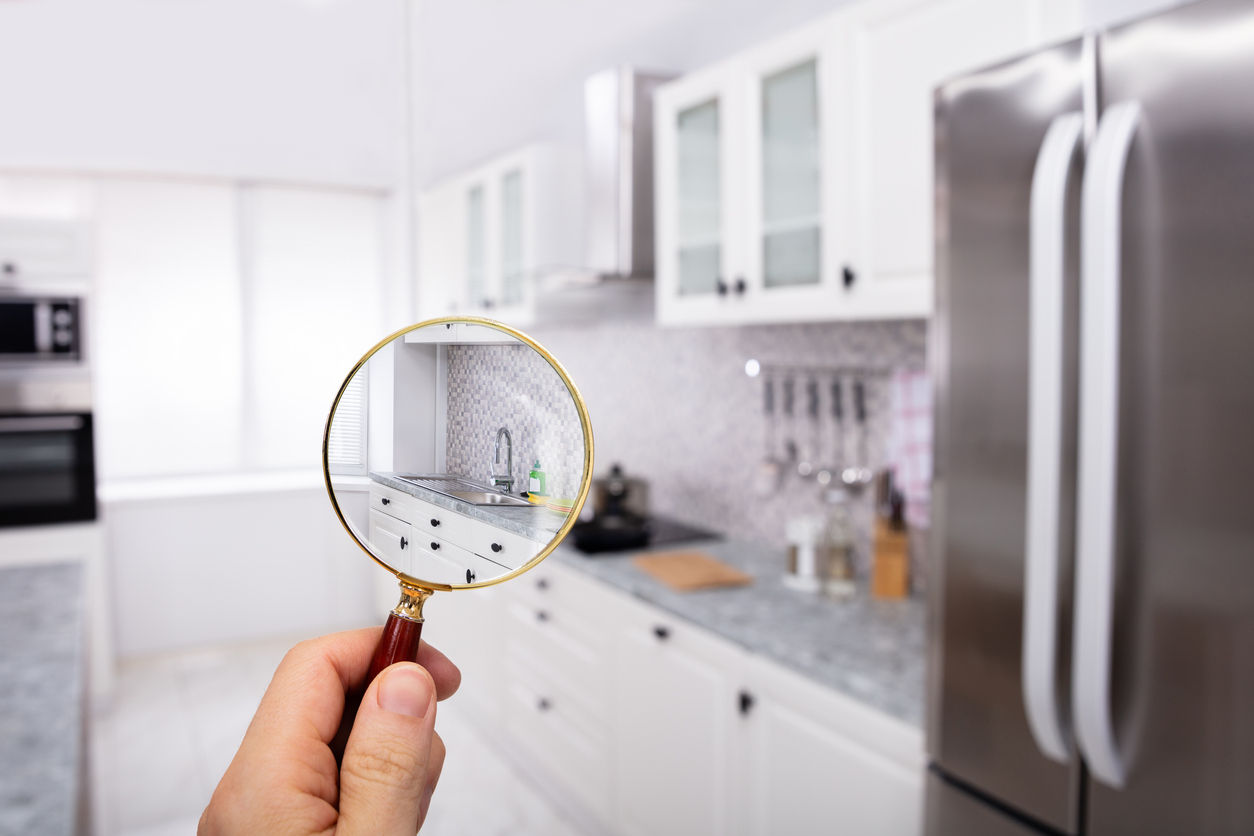- How long are home appraisals good for?
- Factors that Affect the Validity of Home Appraisals
- Special Loans: How long Are FHA, VA, and FNMA appraisals good for?
- How does an appraisal update work?
- How is an appraisal different from a comparative market analysis?
- An Appraisal’s True Value
- What To Do When Your Appraisal Expires
- Appraisal Extension and its Implications
- Second Appraisals: Scenarios and Considerations
- Hire an Expert to Help You Navigate the Real Estate Market
How Long are Home Appraisals Good For? A Comprehensive Guide
A home appraisal is an expert’s estimation of how much a home is worth. This step is important when you are buying or selling a home because it can guide you to a fair and reasonable price.
A fresh appraisal helps both the buyer and the seller agree on a price that makes sense. But do keep in mind, the value stated in an appraisal doesn’t last forever.
In this article, we will explore how long home appraisals are generally considered good and why this time frame is important to keep in mind. Let’s get started…
How long are home appraisals good for?
When you get an appraisal, your lender will review how long the report is good for.
In most cases, an appraisal expires after 90 days but can be valid for up to six months. If the market is currently volatile, the appraisal might expire after only 30 days.
Factors that Affect the Validity of Home Appraisals
There are many factors that contribute to appraisal expiration dates, but the main driver is current market conditions. Even in a stable market, home values increase and decrease throughout the year. Your house will not be worth the exact same amount in six months as it is today.
Look at the home values of 2022 and 2023 as an example. According to the Federal Reserve of St. Louis, the median sale price of homes in the United States in Q4 2022 was $479,500. In Q1 2023, this number dropped to $429,000. In less than six months, home values changed by more than $50,000. Keep in mind that these are national trends. Regionally, your home value changes might not have been as dramatic or could have increased in value.
This data highlights how quickly an appraisal can become dated. Other factors can also contribute to how soon your appraisal expires. If a new school opens near you, your property values might increase. Seasonal buying trends can impact property values from one month to the next. Even if nothing has changed in the market, new lender policies might shorten the validity of your home appraisal to less than 60 days.
In the event that your appraisal expires, you will need to get a new one. You might also be able to secure an appraisal update that your lender approves of in order to reach your closing date.
Special Loans: How long Are FHA, VA, and FNMA appraisals good for?
While standard home appraisals are usually valid for at least 90 days, some reports have shorter validity periods. This is usually part of the requirements for specialty loans because lenders want to make sure the mortgage isn’t risky.
If an appraisal is incorrect or outdated, the loan becomes riskier because the bank doesn’t know what the house is worth and if the borrower could sell it to pay back the mortgage.
Here are a few appraisal timelines for specialty loans.
Federal Housing Administration (FHA) Appraisals
As of July 2022, the appraisal validity period for FHA loans is 180 days, an increase from the initial validity period of 120 days. This means an appraisal is good for six months from the date the report is published. The FHA also has an appraisal update period of 240 days up to one year. During this time, the potential buyer can secure an update instead of seeking out a whole need appraisal.
When you apply for an FHA or VA loan, you are given a case number assignment related to your application. This change applies to anyone with case numbers assigned after July 1, 2022.
Veterans Affairs (VA) Appraisals
Appraisals for VA loans are valid for six months (180 days) after the report is complete. These loans also expire after the closing date on the house. An appraisal cannot be reused once the home is purchased and the new owner will need to seek a fresh appraisal if they need one.
Fannie Mae (FNMA) Appraisals
An appraisal for a Fannie Mae loan is usually valid for 12 months. However, the buyer might need to get an update after 120 days. This means that it is in the best interest to use the appraisal and close on the home within two months of getting the appraisal, otherwise, they might need to schedule an update for the report.
How does an appraisal update work?
If your home appraisal is set to expire before your closing date, there is good news: it is unlikely that you will need to get a new appraisal. Instead, you will request an appraisal update.
An appraisal update forwards the date of the report to reflect current market conditions. The appraiser will review the report and consider which data is still valid and which factors are irrelevant.
For example, it is unlikely that the square footage of the house has changed within 90 days. This information can remain in the original appraisal.
However, the comparable properties used will no longer be relevant because the real estate market has changed. The appraiser will need to find other properties to compare your home value to.
The new appraisal will reflect the current fair market value of your home and will have a new expiration date. Oftentimes this update can be performed without the appraiser entering the home – especially if the owner hasn’t made any significant changes to the property.
Appraisal updates are accepted by most mortgage lenders for borrowers who are seeking conventional loans, FHA loans, VA loans, and USDA loans. If the seller is delaying the closing date, the buyer’s lender might accept an appraisal update to make sure the home’s value is still in line with the original report.
Recertification of Value and Updated Appraisal
As you get to know the terminology around appraisal updates, you might also come across the requirements for recertification of value. The recertification of value (ROV) does not bring forward the expiration date. This review simply confirms the property value and ensures that the appraisal was carried out thoroughly and objectively.
One example of this is when a house is currently under construction. The original appraisal report might be based on what the home value should be once the construction is complete. After the work is done, the borrower can request an ROV to confirm that the construction was completed based on the plans.
How is an appraisal different from a comparative market analysis?
There is a significant difference between an appraisal and a comparative market analysis (CMA). A CMA is used by both appraisers and real estate agents to track the market value of a home. These professionals look at existing homes on the market that have sold recently and have similar traits as the property they need to appraise.
For example, a CMA will review multiple homes in your neighborhood that have similar square footage, bedrooms, bathrooms, and bonus features (like garages, pools, and updated appliances). This analysis can give your real estate agent and appraiser an estimated value of your home before they even set foot in it.
You can even conduct your own appraisal by looking at similar properties to your own on sites like Zillow. This CMA can give you an unofficial estimate of what the formal appraisal report will look like.
Remember that no two homes are exactly the same. Your Realtor and your appraiser will need to look at your house to see how it compares to similar homes in your area. The CMA is just one aspect of determining the value of your property.
An Appraisal’s True Value
Appraisals are valuable elements in the real estate market. Even if you are buying a house with cash, you might want to secure a home appraisal or might need one for various aspects of homeownership.
First, an appraisal is required to get a mortgage loan unless you have a significant down payment. If the appraisal is close to the listed value of the home, the loan can move forward. If the appraisal is much lower than the listing price, the buyer’s lender might not approve the loan. The buyer and seller will have to negotiate a new price or walk away from the deal. Sellers can benefit from negotiating with buyers. If they refuse to lower the listing price, they might have the same problem with the next buyer who also secures an appraisal.
Next, appraisals are often required by home insurance companies to track the value of the properties they are protecting. If you switch insurance companies, you might need to get a new appraisal.
Finally, appraisals can be beneficial after the expiration date because they provide valuable information about the house. They highlight the key elements that contribute to the home’s fair market value and set a price for what the property was worth at the time.
What To Do When Your Appraisal Expires
If your home appraisal reaches its expiration date, work with your real estate agent and lender to decide on your next steps. The average appraisal usually costs between $300 and $500 and needs to be paid for out of pocket. If you can avoid scheduling a new appraisal, you can save money and streamline the home purchase process.
Depending on market conditions, you might be able to request an appraisal update that moves up the validity of the report and confirms the market value. This will give you an updated home appraisal without having to reschedule a whole new evaluation. While the original appraisal might only be valid for six months, the updated one might be valid for up to a year.
You aren’t the first person to request an appraisal extension. Life happens and both the buyer and the seller might have to push back the closing date. In most cases, your lender will try to work with you to make the home sale happen without making you get a second appraisal.
Appraisal Extension and its Implications
Securing a whole new appraisal is time-consuming and expensive, so there are times when a lender might allow a buyer to get an appraisal extension instead. This is different from an update in that the date is extended without having to review the appraisal. These extensions are often approved for conventional loans where the seller is delaying the closing date.
The use of these extensions varies between lending institutions. Some banks and credit unions prefer borrowers to secure updates instead – especially in volatile markets. Other factors that affect the use of extensions might include the size of the loan as a percentage of the home’s value. If the borrower has a large down payment, the risk to the bank is lower.
An extension might be approved as long as there hasn’t been a significant change to the market or the property’s value. If there is property damage from a storm or disaster, the lender will likely require a whole new appraisal.
Second Appraisals: Scenarios and Considerations
There are some situations where you might be required to secure a second appraisal – or might decide to invest in one yourself. First, once your appraisal passes the update period (usually 12 months after the first report is issued) you will need a new one. Next, you will need a new appraisal after you close on your house in most cases. If you decide to switch home insurance providers, even just a few months after you close on the home, your old appraisal is not valid.
You also might opt for a second appraisal if you feel like your first one is inaccurate. The first step is to review the report and reach out to the appraiser about your corners. They can double-check the information they have on your property and review the comparable sales to make sure they are relevant. If the appraised value doesn’t change, you can work with another company to secure a second appraisal.
Unfortunately, there are times when home appraisals are biased. There have been multiple lawsuits in recent months regarding appraisers devaluing homes by black homeowners compared to white homeowners. This limits the potential sale prices of these homeowners and can stall sales if the buyer’s appraisal comes in below the listing price. If you think that your appraiser was biased or unfairly valued your home, seek out a second appraisal.
An appraisal usually takes a week to 10 days to come back after the initial home inspection. Know that seeking a second appraisal might slow down your mortgage application process but it might be worth the effort. It also might be a requirement if the report is required past its extension period.
Hire an Expert to Help You Navigate the Real Estate Market
The world of real estate is filled with complicated terms, regulations, and deadlines. Home prices can change within a few weeks and the real estate market can become competitive. If you have a desired time frame to buy a house, make sure you hire a real estate agent who you can trust. They can help you hit your deadlines and understand the value of your home appraisal.
To find a Realtor you can trust, turn to the professionals at FastExpert. We work with the top real estate agents across the country and pair Realtors with buyers and sellers. Let your agent guide you through the real estate transaction and make you feel confident about your decisions. Try FastExpert today and take the first steps toward buying your dream home.




